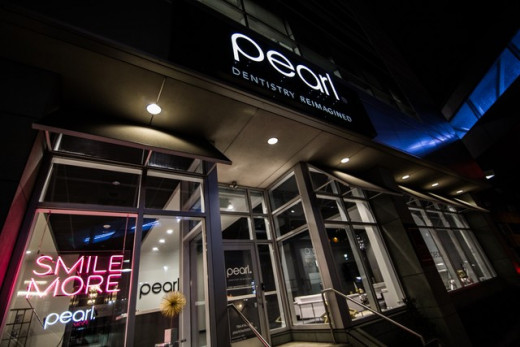Dentistry involves the study, prevention, diagnosis of teeth and the mouth, including how to correct disorders and treat diseases of the oral cavity and related tissues and structures in the maxillofacial area. Dentistry also includes procedures and practices that are done by surgeons. In this article, we will discuss the various kinds of dentistry and their importance.
1. Preventative Dentistry Practices
This is oral care involving treatment, education, and practices that maintain the gums and teeth. Daily brushing and flossing, annual cleanings and dental check-ups are all practices that aim to prevent cavities, gum disease, enamelware, and many other dental illnesses.
Common Preventative Dentistry Practices
Most procedures take place on a single appointment for both the old and young patients. The patient is examined by the dentist to check dental decay using the x-ray images or the oral exams. After that, the dentist can recommend teeth cleaning to prevent gum diseases or cavities. The dentist could, however, give you more appointments depending on the condition of your teeth.
Treatment for Children, Pediatric Dentistry
Preventative dentistry is essential to children because their teeth are very delicate. It is important to get early cleanings and exams before the bacteria has built up, to avoid future decay. Our Charlotte dentists can use sealants to cover the permanent molars of children to prevent them from decaying. Children could also undergo orthodontics whereby they will wear braces to avoid misalignment of the teeth as their jaw develops.
Goals of Preventative Dentistry
This type of dentistry helps the patient to keep their gums healthy, get rid of cavities, improve sensitivity, and eliminate or control other oral diseases. Early detection of gum diseases or cavities can be dealt with and treated to give the patient a lifelong bright smile.
2. Special Needs Dentistry Health Conditions
Both adults and children with special needs benefit greatly from visiting a dentist. Dentists attending to these patients have additional training to enhance their services. When looking for a dental specialist, be sure to research practices that can accommodate and resolve problems and has exceptional knowledge. There are several types of oral health conditions in children with special needs.
Tooth Eruptions
This could be inconsistent, delayed or accelerated in children who have growth disturbances. Their gums may look purple-bluish or red before the tooth erupting has broken through their gums into their mouths. The eruptions may depend on factors such as the growth of the jaw, genetics, or muscular action. Children suffering from Down Syndrome can show delays in eruptions for two years.
Malocclusion
This is a condition whereby teeth are poorly fitted between the lower and upper teeth and crowding of teeth may occur mostly in children with developmental disabilities. Around 25% of the 80 craniofacial anomalies that affect oral development are normally associated with mental disabilities. Muscle dysfunction contributes to Malocclusion, especially in individuals suffering from cerebral palsy. Misaligned or crowded teeth are difficult to clean thus may cause dental caries or periodontal diseases.
Tooth Anomalies
These are the variations in shape, size, or number of teeth. Individuals with conditions such as oral clefts, Down Syndrome, or Ectodermal Dysplasia could have malformed, extra, or congenitally missing teeth.
Oral Developmental Defects
They occur as lines or discoloration in the teeth. Certain medications or high fevers can affect tooth formation which can result in effects. Most teeth with defects are likely to have dental caries; they are difficult to clean and could compromise a child’s appearance.
Oral Trauma
Mouth and face trauma occurs mostly in individuals with seizures, muscle incoordination, mental retardation or abnormal protective reflexes. Close observation should be taken to people getting restorative dental care to ensure that they do not chew on anesthetized regions.
Bruxism
This is a habitual grinding of teeth, and it is common for people with severe mental retardation or cerebral palsy. Bruxism may lead to flat biting surfaces or tooth abrasion in extreme cases.
Oral Infections
Tooth decay and dental caries can cause gastro-oesophageal reflux and frequent vomiting. Medications containing sugar, special diets, or less normal amounts in saliva can cause these oral infections as well. With poor oral hygiene, the teeth are likely to get carries.
Viral Infections
They are normally caused by the herpes simplex virus. Children rarely get herpes labialis or herpetic gingivostomatitis before six months. Most herpetic gingivostomatitis is common in children, although it can occur in young adults and adolescents. The viral infection is mostly accompanied by fever and could be painful.
Gingival Overgrowth
This could be caused by the side effect of medications like calcium channel blockers, cyclosporine or phenytoin sodium. Poor oral hygiene may cause superimposed infections. Severe overgrowth may cause tooth eruption, appearance, or chewing problems.




